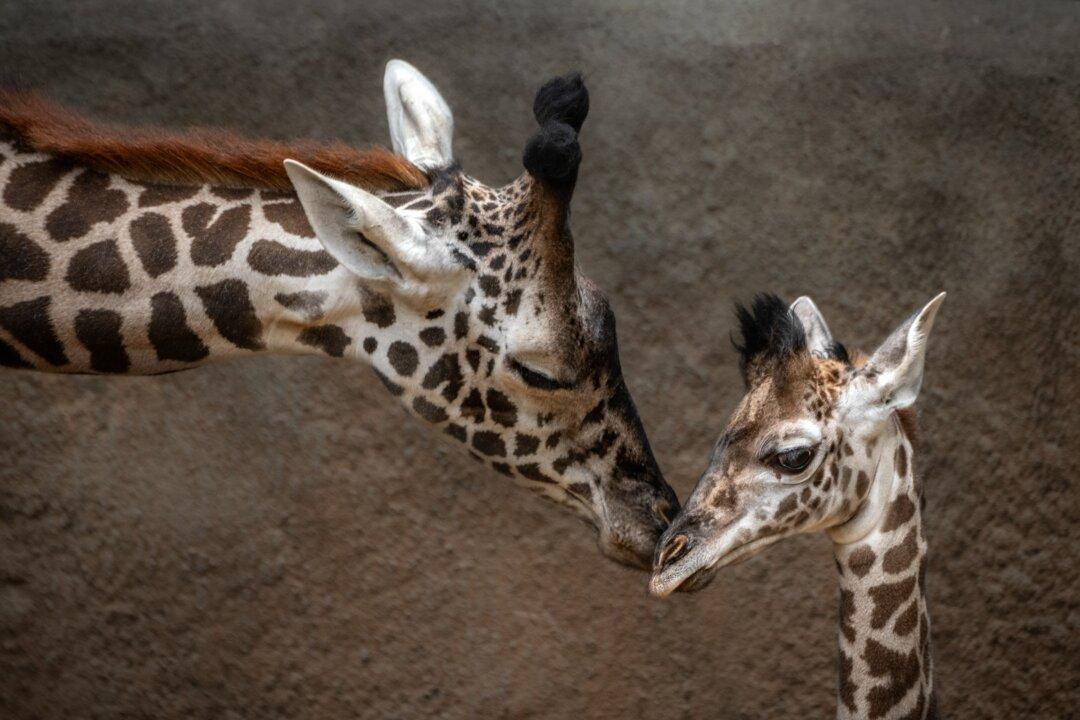LOS ANGELES—Visitors to the L.A. Zoo can now view its newest resident—a baby male Masai giraffe, in the Africa section, zoo officials announced Nov. 6.
“We are happy to have a safe and healthy delivery of the newest arrival to our giraffe herd. He was standing, walking, and nursing within 90 minutes after birth,” Mike Bona, a zoo animal keeper, said in a statement.





